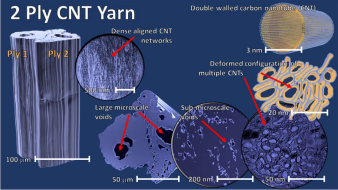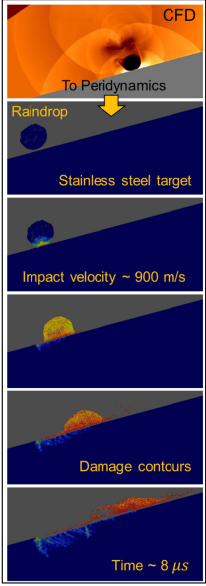Aerospace Materials Research Using Peridynamics
By: Ibrahim Guven, Associate Professor, Mechanical and Nuclear Engineering, Virginia Commonwealth University, Richmond, Virginia, USA
Date and Time: 06 September 2022-13:30
Place: Mavi Salon (Makina Fakültesi-Gümüşsuyu)
Abstract: This talk will have two parts: (1) Multi-scale deformation and failure analysis of carbon nanotube-based composites and (2) response of aerospace structures to high-velocity droplet impact. Both topics utilize the emerging computational mechanics approach peridynamics. The main concern with continuum mechanics-based frameworks with respect to impact damage is their handling of discontinuities. The constitutive relationships are expressed in terms of partial differential equations, which are undefined at discontinuities such as fractures. In 2000, Silling presented peridynamics (PD), a reformulation of the elastic theory to account for those discontinuities and long-range forces. He reorganized the constitutive equations into integral equations, which are defined everywhere, including at discontinuities. Peridynamics has been shown to accurately predict fracture and crack propagation, including crack branching, where FEM often fails. PD also handles contact intrinsically via short-range repulsive forces, which keep nodes no closer than a certain distance. Because these short-range forces ignore the nodes’ initial configuration, large deformation is not an issue with respect to contact forces. The multi-scale analysis portion concerns the work being performed towards making structural composite material for the planned crewed mission to Mars. This work is funded by NASA under the Space Technologies Research Institute program. The high-velocity droplet impact problem explores the interaction between water droplets and aircraft surfaces at conditions Mach 3 and above. The droplet shape at the time of impact is provided by computational fluid dynamics simulations. High strain rate response of metallic and ceramic aerospace materials is explored. This work is funded by the US Office of Naval Research.
Bio: Ibrahim Guven is an Associate Professor of Mechanical and Nuclear Engineering at Virginia Commonwealth University. Previously, he was a tenure-track Assistant Professor of Materials Science and Engineering at The University of Arizona. He spent two summers at US Air Force Research Laboratory as a summer faculty fellow. He also served as a visiting scientist at the Institute of Physics at The University of Rennes 1 multiple times. Prof. Guven is the General Chair of the 2023 IEEE EPS Electronic Components and Technology Conference. His research is funded by NASA, Air Force, Office of Naval Research, Boeing, and Raytheon.

